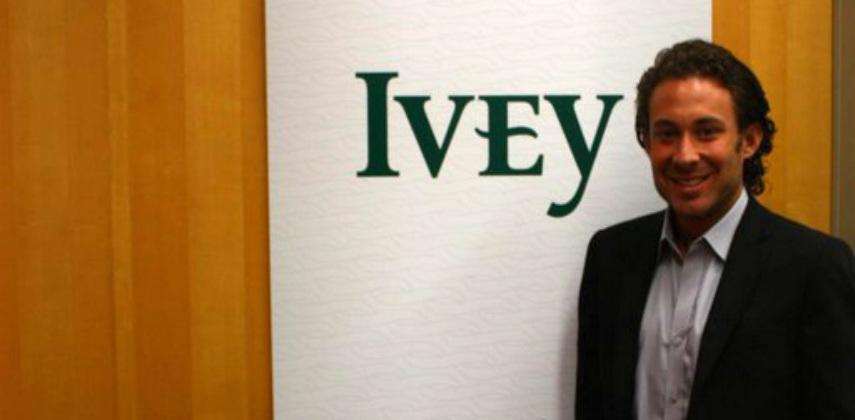Programme in Business
Ivey School of Business Asia
Adopting the principle that you’re never too young to learn, one of the world’s top business schools has been running a special summer programme in Hong Kong tailor-made for pre-university students.
The intensive two-week course offers an introduction to key facets of global business, explaining basic concepts, analysing real-life case studies, and challenging the 30-strong class to get the most out of a different educational experience.
“It is an opportunity to explore business and, just as importantly, to think about learning in a new way,” says Loron Orris, regional director for the Executive MBA programme at Richard Ivey School of Business Asia. “The students have all bought things, seen marketing campaigns, and have opinions on what works and why. We want them to see what a business really does, but also to participate fully and enjoy what they are learning.”
Lectures and case analysis cover five functional areas: finance, organisational behaviour, operations, marketing, and general management. This involves over three hours of morning classes, with afternoons set aside for group work, preparation and review.
There is a deliberate emphasis on discussions, considering alternative perspectives, and getting students to put forward their own observations or impressions. It is also made clear that, for each case studied, there is not necessarily a right or wrong answer. What matters most is being able to identify the key issues, having a proper decision-making process, and putting together a workable action plan.
“We effectively start from scratch, assuming the students know nothing,” says Ivey pre-business lecturer Eric Silverberg. “We explain what balance sheets, income statements, breakeven analyses and marketing plans are. The cases used mainly focus on small businesses, though we use big-name examples like Google, Apple and McDonald’s to bring out key points during the lectures.”
A lot is crammed into the time available, most of it drawn from the first- or second-year university curriculum. The two weeks of teaching then culminate in a case competition in which teams of six present their insights and recommendations to a high-powered panel of judges.
A 20-minute presentation, where everyone takes a turn to speak, is followed by five minutes of quick-fire questions and answers to test out the thinking behind the conclusions.
Some of this year’s students attended on scholarships. Others were nominated by non-profit organisations or had parental support to pay the HK$24,000 tuition fee. Applicants are asked to submit a personal recommendation from their head teacher and are interviewed by Ivey Asia’s dean to assess their English language skills and general willingness to voice an opinion.
“It is not all about grades,” Silverberg says. “We look at extra-curricular activities, personality, and having diversity in the group, which is how Ivey operates at all levels.”
Faculty member Erica Spear notes that the case-study method allows summer-programme students to learn by doing, which is why it works so well. It also encourages young people to look beyond the obvious, to question accepted views, and think for themselves. Those are important skills even for individuals who haven’t set their sights on a future career in business or finance.
“The earlier you develop that way of thinking, the better,” Spear says. “The programme lets students make mistakes. When they are wrong, we tell them, but we are gentle about it and show them how to move forward.”
General feedback has been so positive that Ivey Asia has already launched a parallel programme in Beijing. It employs the same concept and curriculum but also includes more sports and cultural activities.
“Potentially we could increase the number of students and locations from next year,” Orris says. “We already have children of our EMBA alumni taking part.”


